When it comes time to go out on a trek or just to have a Campout you have a lot of choices. Perhaps one of the most important is where you will be sleeping. After a long day of trekking or just enjoying the great outdoors, you will want to have somewhere nice and comfortable to lay your head at the end of a long day.
Some minimalists will want to take merely a blanket and sleep on the ground. But as for us think that it is worth the extra weight of anything else is worth the added comfort. However, that does bring up the question, what to bring with you. You could go with a tent, or you might want to spend the night in a hammock. So, which is better, let’s dive into investigating a hammock vs tent.
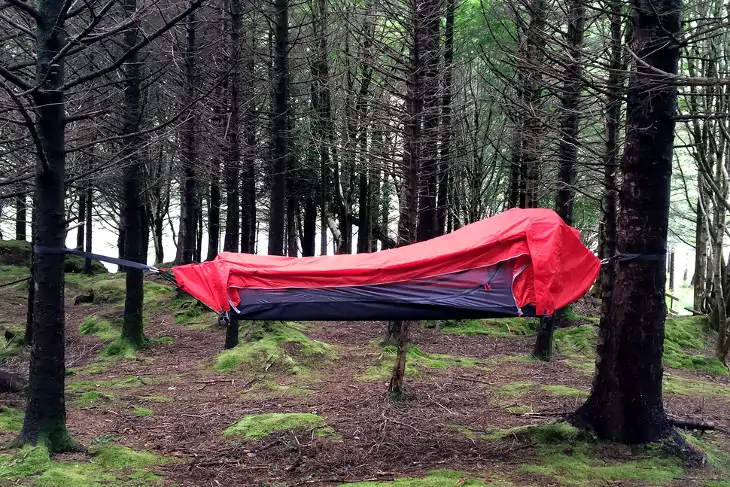
But if we are going to decide if it is better to take a tent or hammock on your next trip, we’ll need to look at some of their differences. Each has its own strengths that would recommend it, but to be fair, we’ll take a look at areas where they each fall short. We’ll need to consider some areas such as setup, sleeping comfort and weight. We will also need to consider their limitations.
Head to Head
Weight
At first glance you might think that the hammock is going to win this one hands down. After all, a camping hammock with a built-in bug bag only weighs about 30 ounces. A backpacking tent will come in between 80 and 100 ounces.
But once you think about adding in the hanging straps (which weigh about 15 ounces) and a tarp to keep you dry (which will add another 35 ounces). When you add in everything you need for the hammock you end up in the range of the backpacking tent. Of course, you can probably find other options that will weigh more or less. Our reviews of the finest lightweight hammocks will give you more options, so check out the link.
Size
The next feature that we will want to look at is the size of each. First, let’s consider a hammock. As it is out and set up it is about big enough for one person to lay in. If you are particularly tall you will want to verify the hammock you are looking at will give you enough space to stretch out.
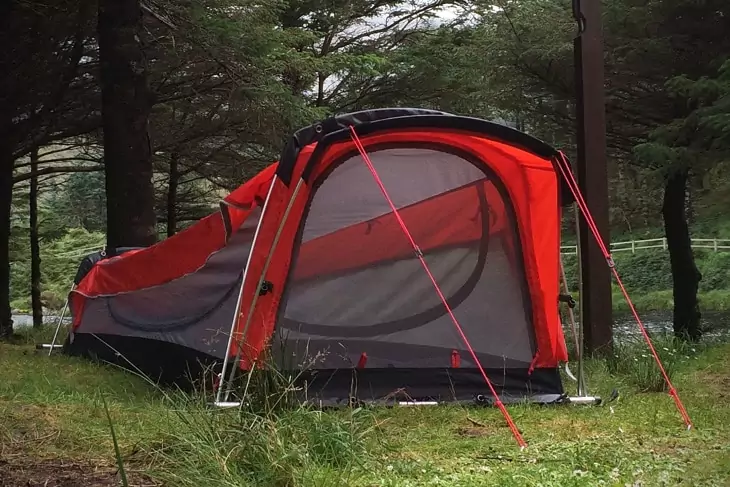
The tarp that you might set up over will end up covering more space, but that doesn’t really add any extra space for you to stretch out in. When you take it all down and stuff it in a stuff bag it won’t be very large at all. They tend to be about the size of a Nalgene bottle.
The other option is our tent. This one has more of a variation in sizes. While a small backpacking tent will offer just a bit more space than your sleeping bag takes up, other tents could mean more space to stretch out or put some other gear in.
Just like we mentioned when discussing hammocks, if you are tall double check how much space you’ll have to sleep. At 6 feet 2 inches I’ve come up across a tent or two that I couldn’t fully stretch out in. A typical backpacking tent will pack down to a size that is comparable to a hammock. If you go with something bigger you will start bumping up the pack down in size as well. Do you want the best of both worlds? Then check out our article on the choicest hammock tents that will fit your adventures.
Other Campers
As a note related to size, take a moment to think about who you will be going on a trek with. A hammock is great if you want to sleep by yourself. If you are taking a romantic partner with you, you might feel a bit lonely in your hammock though. This is a situation when a tent might be a better option. Also, consider your four-footed companions.
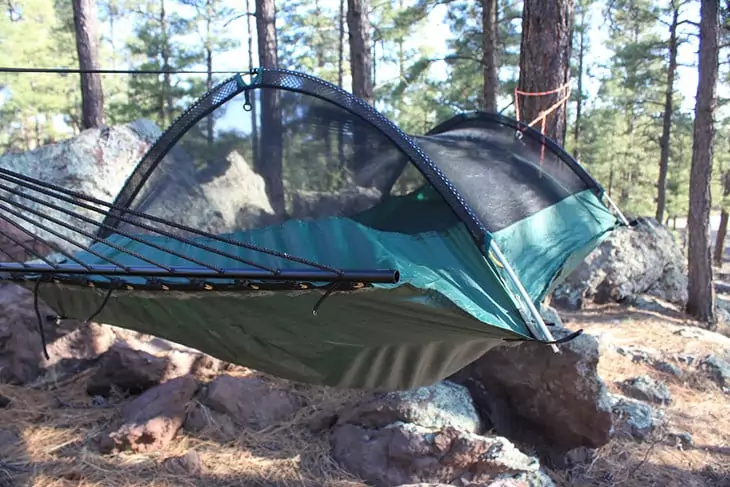
If you go camping with Fido, you will have to determine if you want to teach them to sleep under the tarp for your hammock or would you feel better with them inside the tent with you. Or perhaps Fido sleeps in the car and so you don’t need to worry, just pick which you want.
Comfort
This area perhaps more than any other that we discuss will be a matter of personal opinion. Let’s start off considering the tent. Some will find that it is more comfortable to sleep in, completely out of habit. If you have spent the most of your camping nights sleeping in a tent, it becomes natural for your mind to go the thought of sleeping in one for your next trip too.
And in truth your tent does offer a sleeping experience closer to that of your bed, you have a rather stable surface that you are sleeping on. However, on cold nights you’ll find that the ground can be quite the heat sink, cooling off anyone who sleeps on it without a few extra layers. Also, there is many a night that the nice spot that you chose to put your tent seems to magically grow some roots and sharp rocks in the middle of the night.
In a hammock on the other hand, you are up in the air. No amount of rocks and roots will work their way to poking your back in the middle of the night (so long as your hammock doesn’t since down to the ground). Some may have trouble drifting off to sleep at nice, again from the habit of viewing a hammock for relaxing more than getting a good night’s sleep.
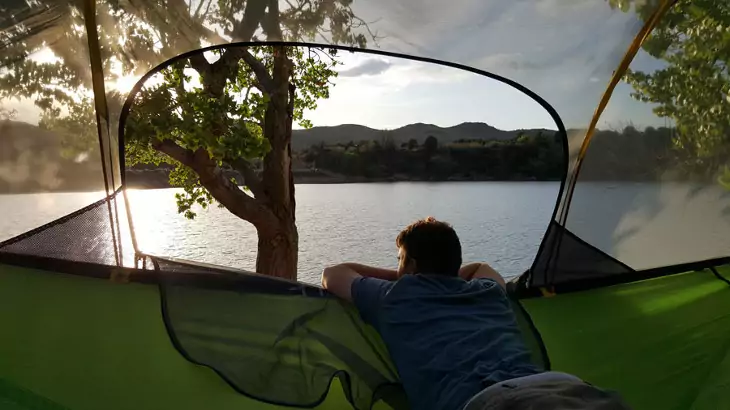
Depending on what hammock you have and what you have brought with you, you may wake up with some gifts from the trees. Some hammocks have a built-in bug screen, others are just open top. If you have an open top style and don’t put a tarp over you, perhaps since it is shaping up to be a beautiful night, you might find that the trees you have selected will drop leaves, needles, pine cones or nuts on you.
Lastly, some people find sleeping in the classic hammock “banana shape” to not be the way that they want to spend their nights. See our review of the Grand trunk Nano Hammock to make choosing the right hammock easier for you.
Set Up
Realistically, when debating between hammock vs tent this one doesn’t have much of a difference. We’ve all spent those evenings in camp setting up an old fashion tent that just has a pile of identically sized poles and you just have to guess how it goes together, since the instructions crumbled to dust before you were born.
But if you have a more modern tent it is simple to set up. Often times the poles are now color coded down to the seams that they go over. With a few clips and slipping the poles into their holes you will have a tent up in no time flat.
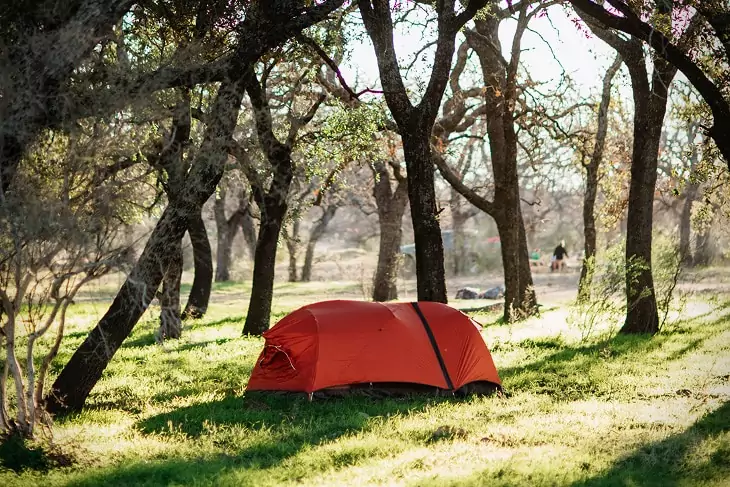
And the hammock is another simple set up. You’ll just need to find some trees located far enough apart (and hopefully not over a massive gorge) and start strapping your hammock up.
Yes, the first time or two that you assemble it, you might have a question to make sure that everything is going correctly. But then again, you should probably be doing a dry run of any new gear before taking it out on the trail to ensure that you know how to use it properly and to care for it correctly.
Storms
So, you’ve gotten your sleeping arrangements all set up and a storm blows up? Which would you rather be in? It would seem that in a storm a tent is still a clear winner. With walls all around you, even if they are thin tent material there is a mental state that makes you feel better.
And yes, I’ve been camping in those windstorms that made my tent lay down and touch my nose while I was in my sleeping bag, but I would still have preferred my tent over a hammock.
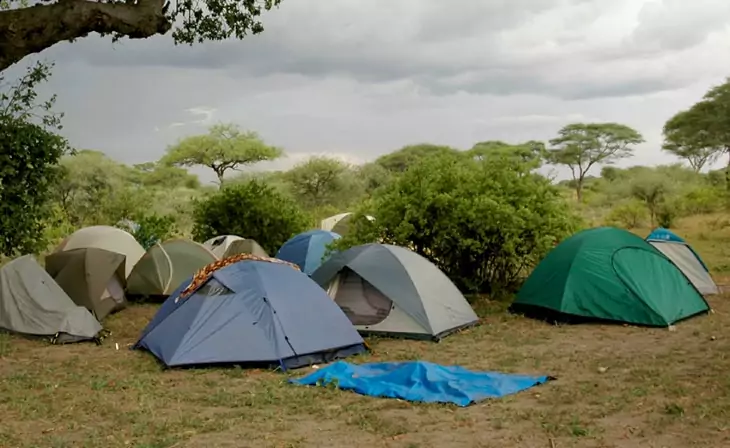
While you may have a tarp up over your hammock and it may do a better job than a tent at keeping all the rain off of you (somehow tents always seem to have that one place that rain storms seem to find to let water in). However, when the wind kicks up you are still swinging in a cocoon between two trees.
A gentle breeze and a soft rocking might help you drift off to the sound of the woods, but a true storm can have you swinging to the point that you are wondering if you can get seasick in a hammock.
Finding a Spot
When you start to consider limitations, there is a very clear on that comes up for the hammock. You need to have two good sized trees that are spaced the right distance apart. If you can’t find a pair that is in the right range for your hammock you are out of luck. This means that beach camping in your hammock is pretty much a no go as is if you are planning on spending a night or more above the tree line on your next peak bagging trip.
You will also want to take a look at where you plan on going for your trip. Some areas that may have more than enough trees will ban you from using a hammock as they feel continued rubbing of straps around trees could damage them.
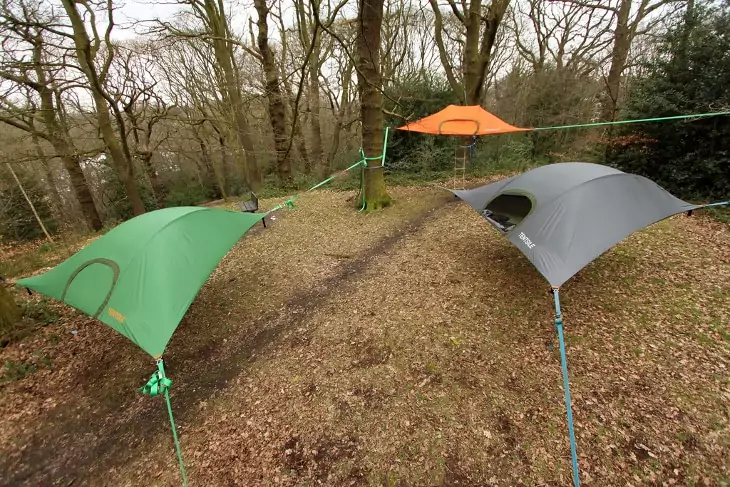
But just because a hammock has its own problems doesn’t necessarily mean that a tent is always a better option. A tent has a fairly set footprint, you will need to find a spot that size that is clear to put your tent down. In our beach example that might not be an issue, but go up a mountain and you’ll find rocks everywhere.
Also, if you are in a dense forest you may be hard pressed to find a place to stretch out your tent that doesn’t have a tree or at least a root that will be in your way. And you will still need to double check where you are headed, as many places want you to only camp in designated sites and if everyone else booked those sites then you have nowhere to set up your tent.
Price
It is almost not worth mentioning this one at all. There are far too many variables. You might be able to go to a big box store and get a great deal on a basic model of either and not have to spend very much at all. You could also go to a high-end camping store and think that you are getting a great price on a tent to find out that you have to pay separately for the ground cloth and the rain fly.
But don’t think the same doesn’t apply to hammocks. You purchase a hammock and even if it has a built-in bug screen you’ll find that you need to get some straps to actually be able to use your new purchase. Then, if you think there might be rain you’ll be looking at buying a tarp separately. Sure, both have package deals to make sure you get everything at once.
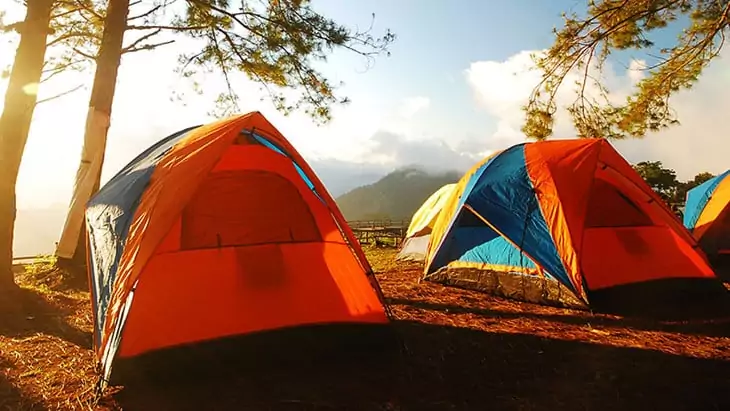
At the end of the day, if you get a comparable single person backpacking tent and a similar quality hammock you will end up in the same ballpark price wise.
Consider Your Trip
As you’ve seen when you put them head to head there isn’t a clear winner as to which is better. And as we’ve mentioned a few times above your trip details will come into play more. If you are going on a family trip where you can drive up to campsite, maybe it is worth it to just pack the big tent. You’ll only have one shelter to put up and it will end up being warmer by having a number of people inside instead of just one.
Of course, if you and your buddies are off to hit the trail, perhaps it is better to ensure you have your hammock. Then you aren’t bunking with someone that will roll over in the middle of the night and push you to the side of the tent or someone that snores all night. Also, with your hammock, you don’t have to worry about that friend who decided that, since the packaging of the tent said three men, all three of you can fit inside and sleep comfortably.
Change Your Thinking
The biggest thing that stops most people from even considering a hammock for their next trek is their thought pattern. A tent is the symbol for camping. Countless places use that simple picture to let you know that they have a campground. We see it in the movies and magazine ads.
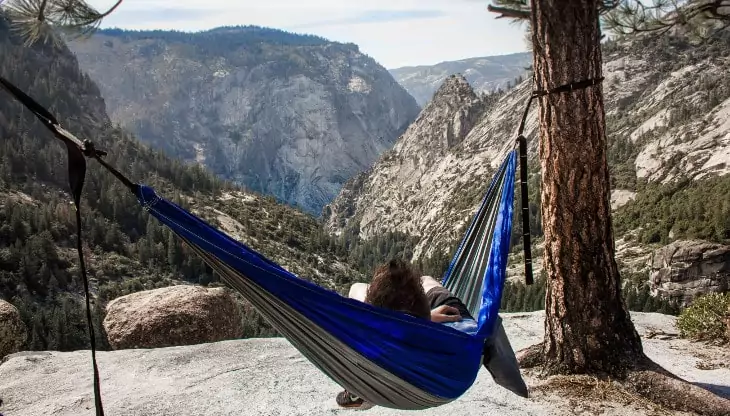
We have all been taught to equate using a tent with going camping. But sometimes we need to question that conventional wisdom. Sure, sometimes that may end up in you having a terrible experience and realizing why things had been done that way.
But this is one of the cases that you may very well like the hammock route more than the tent way of camping. As hammock camping has become more and more popular of a way to get out and experience nature, people have become more open to trying a hammock for their trek.
All across the internet people are posting that they tried it and found it more comfortable or more relaxing or more fun. There are those that didn’t like it as much as their trusty standby of a tent, but they know and they have tried it.
The other great thing about this debate is that you don’t have to be exclusive. No one is saying that you have to dump tents to go steady with hammocks. This is a time that you can have and enjoy both. Let your sleeping shelter be determined by the season and your destination more than the thought of this is how my parents did it so this is how I will do it too!
Wrapping it all up
There are plenty of debates out there, mac vs pc, crunchy peanut butter vs smooth, iphone or android. And many of them fans will come down hard on their side without ever considering the other side. I have seen news articles writing about how this famous New York person or that said they like Chicago style pizza more. But not all debates have to be this opposing.
As we’ve seen going head to head with hammocks and tents there is no clear winner. A lot of it boils down to where you are headed and what you find most comfortable. Whichever you end up picking if it gets you out in nature, then clearly you are the winner. Don’t forget some basic skills needed for the trip. Here’s a guide to our best knots for your hammocks, it’s a must-read for everyone.
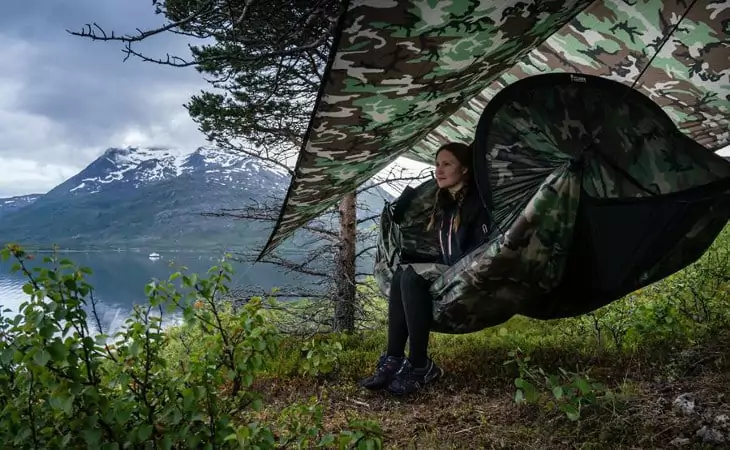
If it is one more thing that gets you moving and hiking you will win on a number of different fronts. But now that we have gotten to have our say, now it is up to you. Trying to convince someone to try out a hammock for the first time? Why not share this article so they can see it.
Or what if you tell us where you come down on the debate? Are you hardcore hammock? Or Perhaps a tried and true tent? Maybe a moderate who can enjoy both equally? Mention it in the comments below.

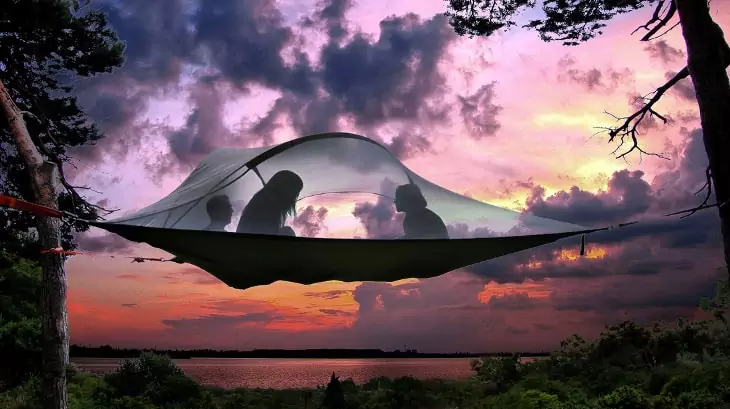
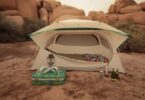

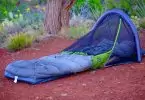



Hey, great article covering everything. I really liked how you went through all the details and even price when you almost decided not to discuss that. But is there a problem with hammocks with suffocation? There seems to be limited airflow. Is this a problem?
Not all hammocks have limited airflow. This will depend on the fabric that is used. For example, a rope hammock has lots of tiny openings so that you can get more airflow while you enjoy nature. Quilted fabric is also used as a more sturdy way to lie down without losing the breeze!
This is completely based on the persons interest I guess. If you like to have the experience of a hammock, its better you feel it at least for a once. However, if we are consider about other facts, tent would be the best option for anyone who do camping. Isn’t it?
This is true if you need more space to move around. However, you can camp in a hammock if you don’t need space to do things.